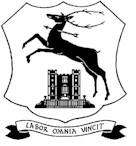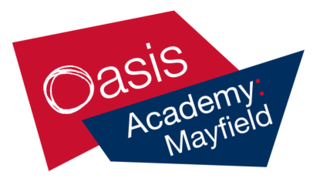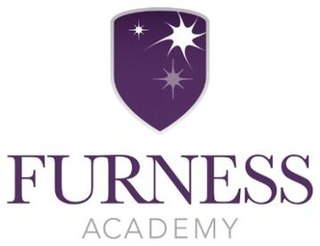
Branston Community Academy, is a secondary school for 11- to 18-year-old students on Station Road in Branston, Lincolnshire, England.

Seaford Head School, in Seaford, East Sussex, England, is a co-educational secondary school with academy status for students aged 11 to 16 years, with a sixth form centre for students aged 16 to 18.
Ernulf Academy is a secondary school with academy status, located in St Neots, Cambridgeshire, England. The name of this school was originally "Ernulf Community School", but was later changed to "Ernulf Community College" and then in September 2004 the school changed its name again to St. Neots Community College when it gained Specialist school status. The school became Cambridgeshire's first 11–18 Specialist Performing Arts College. The college is one of two schools within St Neots, Longsands Academy being the other. The school in May 2009 was put under special measures but as of March 2011 they were classed by Ofsted as a "Satisfactory school with good and outstanding features". The school in now partnered with Longsands Academy as part of the SNLP. Following a consultation the school became an academy from 1 September 2011 and was renamed Ernulf Academy.
The Burgess Hill Academy is a mixed secondary academy located in central Burgess Hill, West Sussex, England.

Unity City Academy is a city academy in Middlesbrough, North Yorkshire, England, sponsored by the Academies Enterprise Trust.

Woolston School Language College was a secondary comprehensive school in Southampton, Hampshire, in southern England. The last Ofsted inspection was on 10 October 2006. The school was a Specialist Language College for students that were 11 to 16 years old. There were around 770 pupils enrolled in the school at the time of closure.

Henley Bank High School is an 11 to 18 academy in Gloucestershire, England. It is sponsored by the Greenshaw Learning Trust. In January 2018, the school was taken over by Greenshaw Learning Trust, in order to assist in improving aspects of the school - this resulted in a name change from Millbrook Academy to Henley Bank High School. The Headteacher is Bradley Nash supported by Executive Head and Director of School Improvement at the Greenshaw Learning Trust, Ben Parnell.

Midhurst Grammar School was a grammar school and later a comprehensive upper school in Midhurst, West Sussex. The school served pupils aged 13 to 18 who usually joined the school from one of the local intermediate schools. It was replaced in 2009 by Midhurst Rother College. Notable students included geologist Charles Lyell and H. G. Wells.

Boundstone Community College was a co-educational comprehensive school for pupils aged 11 to 18, with around 1,000 pupils, including over 100 in the Sixth Form, which served the communities of Lancing and Sompting. The school closed on 31 August 2009, being replaced by the Sir Robert Woodard Academy.
West Walsall E-ACT Academy is an 11–18 mixed secondary school and sixth form with academy status in Walsall, West Midlands, England.
The Angmering School is a coeducational community secondary school and sixth form located in Angmering, West Sussex that opened in 1975. The school also has "specialist Sports College status". The headteacher is Simon Liley. There are approximately 1400 children on roll, with an age range of 11 to 18 years.

Swallow Hill Community College is a educational secondary school Academy located in Leeds, West Yorkshire, England. It is sponsored by Academies Enterprise Trust which is also known as AET.
Ryde Academy, is an academy status Secondary school, including sixth form, located in Ryde on the Isle of Wight, England.

Oasis Academy Mayfield is a city academy in Southampton, England, run by Oasis Community Learning with approximately 900 pupils.
The Sir Robert Woodard Academy is a mixed gender academy, sponsored by Woodard Schools and West Sussex County Council, in Lancing, West Sussex which opened in September 2009. The academy, which serves the communities of Lancing and Sompting, replaced Boundstone Community College, which closed in August 2009. The academy is named after Robert Woodard, great-grandson of Nathaniel Woodard.

Furness Academy is a secondary school in Barrow-in-Furness, England. It is the fourth and last academy to have been formed in the county of Cumbria after the closure of Alfred Barrow School, Parkview Community College of Technology and Thorncliffe School in 2009. Having utilised numerous buildings of the former Parkview and Thorncliffe Schools since 2009, a single £22 million building opened in the Parkside area of the town in September 2013.
Outwood Academy Ormesby is a mixed secondary school with academy status, located in the Netherfields area of Middlesbrough, England. It has an enrolment of 708 pupils ages 11 to 16, with a comprehensive admissions policy.
Winton Community Academy is a mixed secondary school located in Andover in the English county of Hampshire. It is not related to similarly named Winton Academy in Bournemouth.
Paul David Sanderson MBE is the Chaplain at The Littlehampton Academy in West Sussex. He has been Chaplain since 2009. He stood as an independent candidate for the Bognor Regis & Littlehampton constituency in the June 2017 general election polling 2,088 votes (4.1%) finishing fourth ahead of both UKIP and the Green Party.










